
March 29
1826 Birth: Wilhelm Liebknecht: German social democrat, one of the founders of the SPD and father of Karl Liebknecht and Theodor Liebknecht. [For further details, Click here.]
1879 Zulu Wars: British victory at Kambula:
At Kambula, in northwest Zululand, a force of 2,000 British and Colonial troops under the command of British Colonel Henry Evelyn Wood defeats 20,000 Zulus under King Cetshwayo, turning the tide in the favor of the British in the Zulu War.
In 1843, Britain succeeded the Boers as the rulers of Natal, which controlled Zululand, the neighboring kingdom of the Zulu people. Boers, also known as Afrikaners, were the descendants of the original Dutch settlers who came to South Africa in the 17th century. Zulus, a migrant people from the north, also came to southern Africa during the 17th century, settling around the Tugela River region.
In 1838, the Boers, migrating north to elude the new British dominions in the south, first came into armed conflict with the Zulus . . . .
In 1872, King Mpande died and was succeeded by his son Cetshwayo, who was determined to resist European domination in his territory. In December 1878, Cetshwayo rejected the British demand that he disband his troops, and in January British forces invaded Zululand to suppress Cetshwayo. The Zulu War had begun.
The British suffered grave defeats at Isandlwana, where 1,300 British soldiers were killed or wounded, and at Hlobane Mountain, but on March 29 the tide turned in favor of the British at the Battle of Khambula. At Ulundi in July, Cetshwayo's forces were utterly routed, and the Zulus were forced to surrender to the British. In 1887, faced with continuing Zulu rebellions, the British formally annexed Zululand, and in 1897 it became a part of Natal, which joined the Union of South Africa in 1910. [For further details, Click here.]
1895 First Sino-Japanese War: Japanese forces under Admiral Motonori Kabayama occupy northern Taiwan. (Sondhaus) 1895 Birth: Ernst Junger: German novelist, born in Heidelberg. His realistic novels were influenced by his experiences in World Wars I and II. Junger was a friend of Hielscher, and visited him in Paris in Oct. 1943. Junger will declare that "while the 19th century was the century of reason, the 20th was the century of cults." Junger used the code-name "Kniebolo" for Hitler and declares that Hitler "lived on" cults which accounted for the "total incapacity of liberal-minded people to see even where he stands." Junger will live to well over a hundred years old and in the 1950's will experiment with LSD. Junger appears on the fringes of the Stauffenberg bomb plot. He was clearly an inspiration to anti-Nazi conservatives in the German Army, and while in Paris he was close to the officers who carried out the assassination attempt against Hitler. He was not directly involved in the events however, and in the aftermath suffered only dismissal from the army (summer 1944), rather than execution. [For further details, Click here.]
1899 Birth: Lavrentiy Beria--in the republic of Georgia. He rose quickly through the new Soviet Union's ranks via his violent methods and his flattery of Soviet leader Josef Stalin. He was appointed head of the NKVD and carried out Stalin's vision for purges and secret police tactics. Stalin proudly introduced him as the equivalent of Hitler's Gestapo head, Heinrich Himmler. After Stalin's demise, Beria overestimated his power and was assassinated by political rivals headed by Khrushchev on December 23, 1953. [For further information, click here.]
1912 Birth: Hanna Reitsch: German pilot, a famous World War II German test pilot, and a favorite of the upper echelon of the Nazi party...In the last days of the war Reitsch was asked to fly her companion, Colonel-General Robert Ritter von Greim, into Berlin to meet with Hitler. The city was already surrounded by Red Army troops who had made significant progress into the downtown area when they arrived on the 27th April, landing on a city street, and traveled to the Fuehrerbunker. The aircraft she used was the justly famous Fieseler Storch already well known for the exploit that rescued Mussolini, only adding to the legend of both Reitsch and that aircraft. She is said to have overheard Hitler laying out plans for Nazi commanders to join together in mass suicide when it was obvious that the war was over. She also hoped to fly out the children of propaganda minister Joseph Goebbels, who'd been living there with their parents, but he would not allow it. [For further details, Click here.]
1913 German government announces a raise in taxes in order to finance the new military budget.
1916 World War I: Various Italy: List Regiment: Gefreiter Adolf Hitler endures trench warfare in Flanders (Artois) with 3 Company, 16 Reserve Infantry Regiment. [For further details, Click here.] 1917 World War I: Various: List Regiment: Arthur Zimmermann on the Zimmermann Telegram:
I wrote no letter to General Carranza. I was not so naive. I merely addressed, by a route that appeared to me to be a safe one, instructions to our representative in Mexico. It is being investigated how these instructions fell into the hands of the American authorities. I instructed the Minister to Mexico, in the event of war with the United States, to propose a German alliance to Mexico, and simultaneously to suggest that Japan join the alliance. I declared expressly that, despite the submarine war, we hoped that America would maintain neutrality. My instructions were to be carried out only after the United States declared war and a state of war supervened. I believe the instructions were absolutely loyal as regards the United States. [For further details, Click here.]
Swedish prime minister resigns over WWI policy:
Prime Minister Hjalmar Hammarskjold of Sweden, father of the famous future United Nations Secretary General Dag Hammarskjold, resigns on this day in 1917 after his policy of strict neutrality in World War I‑-including continued trading with Germany, in violation of the Allied blockade‑-leads to widespread hunger and political instability in Sweden.
The elder Hammarskjold, a professor of law who became active in politics . . . . was asked by King Gustav V of Sweden to become prime minister in 1914 after a popularly elected government was opposed and defeated by conservative forces. From the beginning of his administration, Hammarskjold pursued a policy of strict neutrality in the war, continuing trade with Germany and thus subjecting his country and people to the hardships wrought by the Allied naval blockade in the North Sea, in place from November 1914.
Though the Allies‑-and many within Sweden‑-saw Hammarskjold's neutrality as a pro-German policy, he apparently considered it a necessary product of his firm principles regarding international law. Sweden's sacrifice during the war, he believed, would prove that it was not an opportunistic nation but a just one; this would put it in a stronger position after the war ended. In practice, however, his policies, and the hunger they produced, hurt Hammarskjold, as did his identification with Sweden's monarchy and other reactionary forces, just as a movement toward true parliamentary democracy was growing in Sweden.
In 1917, Hammarskjold rejected a proposal for a common trade agreement with Great Britain that had been brokered by Marcus Wallenberg, brother of Sweden's foreign minister, Knut Wallenberg, and would have brought much-needed economic relief to Sweden. With the obvious conflict between Hammarskjold and Wallenberg, the prime minister lost the support of even his most right-wing allies in parliament, and was forced to submit his resignation at the end of March 1917. He was succeeded by Carl Swartz, a conservative member of parliament who served only seven months. In October 1917, Sweden's Social Democratic party won their first general election, and Nils Eden became prime minister. [For further details, Click here.]
1918 World War I: Gefreiter Adolf Hitler's 16 Reserve Infantry Regiment [List Regiment] , 3 Company, joins the battle on the Somme, crossing the captured British line and occupying a position near Tergnier. [For further details, Click here.] 1920 Weimar: Rudolf Hess is temporarily recruited by the local airfield at Schleissheim. (THP)
1924 Voelkishness: Konrad Weitbrecht, a Swabian forester who led an ONT group in his region, receives a million Austrian crowns, collected by the brothers of the priories of Werfenstein and Marienkamp, for a seat in South Germany. (THP)
1929 Herbert Hoover has telephone installed in Oval Office: It took a while to get the line to Hoover's desk working correctly and the president complained to aides when his son was unable to get through on the Oval Office phone from an outside line. Previously, Hoover had used a phone located in the foyer just outside the office. Telephones and a telephone switchboard had been in use at the White House since 1878, when President Rutherford B. Hayes had the first one installed, but no phone had ever been installed at the president's desk until Hoover's administration. [For further details, Click here.]
1933 Max Warburg's son, Erich, sends a cable to his cousin, Frederick M. Warburg, a director of the Harriman railroad system, asking him to "use all your influence" to stop all anti-Nazi activity in America, including "atrocity news and unfriendly propaganda in foreign press, mass meetings, etc." (THP)
1934 Boycott: The pro-Nazi German American Bund launches a counter-boycott against Jewish goods and services. The Bund made far more enemies than friends in the United States. Socialists and communists immediately opposed it. So did Jewish Americans, who organized a boycott of products from Nazi Germany (the Bund, in turn, organized a boycott of Jewish merchants and harassed Jewish and communist groups). In Washington, Congressman Samuel Dickstein of New York began an investigation of Nazism in America. The Bund also attracted the attention of the House Un-American Activities Committee. The German-American reaction to Hitler and the Bund was mixed. Most supported American neutrality, and many were glad to see the revival of Germany and were angry about the Jewish boycott of German goods. But they were also uneasy about Hitler. [For further details, Click here.]
1936 Re-militarization of the Rhineland: Hitler receives 99% of the votes in a referendum to ratify Germany's illegal re-occupation of the Rhineland, receiving 44.5 million votes out of 45.5 million registered voters. [See: Did the Germans Really Support Adolf Hitler?]
1936 Various: Nazi Germany: Ethiopia: Italy firebombs the city of Harar.
1941 World War II: Various: War at Sea: Countdown to Infamy: Ribbentrop meets with the Japanese Foreign Minister, Matsuoka, in Berlin. The following are excerpts from the report of their conversations found in the German Foreign Office archives. Matsuoka then introduced the subject of German assistance in the blow against Singapore, a subject which had been broached to him frequently, and mentioned the proposal of a German written promise of assistance. The RAM (Ribbentrop) replied that he had already discussed these questions with Ambassador Oshima. He had asked him to procure maps of Singapore in order that the Fuehrer‑-who probably must be considered the greatest expert on military questions at the present time‑-could advise Japan on the best method of attack against Singapore. German experts on aerial warfare, too, would be at her disposal; they could draw up a report, based on their European experiences, for the Japanese on the use of dive-bombers from airfields in the vicinity against the British Fleet in Singapore. Thus, the British Fleet would be forced to disappear from Singapore immediately. Matsuoka remarked that Japan was less concerned with the British Fleet than with the capture of the fortifications. The RAM replied that here, too, the Fuehrer had developed new methods for the German attacks on strongly fortified positions, such as the Maginot Line and Fort Eben-Emael, which he could make available to the Japanese. Matsuoka replied in this connection that some of the younger expert Japanese Naval officers, who were close friends of his, were of the opinion that the Japanese Naval forces would need 3 months until they could capture Singapore. As a cautious Foreign Minister, he had doubled this estimate. He believed he could stave off any danger which threatened from America for 6 months. If, however, the capture of Singapore required still more time and if the operations would perhaps even drag out for a year, the situation with America would become extremely critical; and he did not know as yet how to meet it. If at all avoidable, he would not touch the Netherlands East Indies, since he was afraid that in case of a Japanese attack on this area, the oil fields would be set afire. They could be brought into operation again only after 1 or 2 years. 'The RAM added that Japan would gain decisive influence over the Netherlands East Indies simultaneously with the capture of Singapore. [See: Did Hitler Have Foreknowledge of Pearl Harbor?]
Joseph Goebbels speaks to the German people on the subject of food rations: The new cuts in food rations that take effect on 6 April will have a big impact in the household of every citizen. It would be foolish and incorrect to ignore it or make it seem better than it is. The relevant offices have thought long and hard about both the size and necessity of the cut. They agree unanimously that the cuts are necessary now, and in the planned amount. Had they not done so, it is likely that in six to eight months we would have even greater problems with our food supply that would require even larger cuts than are needed now. In contrast to the last war, German food policy has taken care to guarantee that the available food supplies are fairly distributed. Because of war conditions, the supply is not sufficient to meet everyone's desires. Surely no one will hold it against the government if it does not allow food to be consumed today that may be absolutely necessary tomorrow to maintain our existence. [For the rest of the speech, Click here.]
Operation Chariot: The British destroyer Campbeltown explodes in St-Nazaire; 400 German POW's perish: the Normandie Dock in St Nazaire was the only Atlantic seaboard facility capable of taking in the mighty German Battleship Tirpitz for essential repairs. The mission devised was codenamed Operation Chariot and its aim was to destroy the dock in the very heavily defended French port. [For further details, Click here.]
1943 World War II: Various: USA: Genocide: A German decree orders that all Dutch Gypsies are to be deported to Auschwitz. (THP) Like the Jews, Gypsies were singled out by the Nazis for racial persecution and annihilation. They were 'nonpersons,' of 'foreign blood,' 'labor-shy,' and as such were termed asocials. To a degree, they shared the fate of the Jews in their ghettos, in the extermination camps, before firing squads, as medical guinea pigs, and being injected with lethal substances. [For further details, Click here.]
Holocaust: After a visit by Himmler, Treblinka adopts cremation to dispose of the victims' bodies. Some 700,000 bodies are unearthed by mechanical excavators and cremated, while simultaneously, bodies from the gas chambers are disposed of in the same manner. Teams of Jewish prisoners transfer the corpses on stretchers to huge steel grids, called "roasters" by the Germans, which can hold as many as 3,000 stacked-up bodies. These 100-foot-wide grids are constructed of a half-dozen railroad rails, resting on three rows of 28-inch-high concrete posts. Brushwood is placed underneath the grid to serve as kindling. (THP)
Life magazine devotes an issue to 'Soviet-American cooperation' and describes the NKVD as 'similar to the FBI' whose job it is to track down traitors.
1945 Various:: Last day of V-1 flying bomb attacks on England. [For further details, Click here.]
Patton takes Frankfurt: Gen. George S. Patton's 3rd Army captures Frankfurt, as "Old Blood and Guts" continues his march east. [For further details, Click here.]
From a memo written by the Reich Chief of Transportation: "Aim is creation of a transportation wasteland in abandoned territory . . . . Shortage of explosives demands resourceful utilization of all possibilities for producing lasting destruction." (Speer) [See: The Last Days of the Third Reich.] Speer to Hitler: When on 18 March I transmitted my letter to you, I was of the firm conviction that the conclusions which I had drawn from the present situation for the maintenance of our national power would find your unconditional approval, because you yourself had once determined that it was the task of the Government to preserve a nation from a heroic end if the war should be lost. However, during the evening you made declarations to me, the tenor of which, unless I misunderstood you, was clearly as follows: If the war were lost, the nation would also perish. This fate was inevitable. There was no necessity to take into consideration the basis which the people would need to continue a most primitive existence. On the contrary, it would be better to destroy these things ourselves, because this nation will have proved to be the weaker one and the future belongs solely to the stronger eastern nation. Besides, those who would remain after the battle were only the inferior ones, for the good ones had been killed . . . . After these words I was profoundly shaken, and when on the next day I read the order for destruction, and shortly after that the strict order of evacuation, I saw in this the first steps toward the realization of these intentions. Speer is summoned to meet with Hitler after the Fuehrer reads Speer's letter (above): Speer offers to resign, but Hitler will not allow it. From Speer's IMT testimony: I said to myself that after the war the responsibility for all these destructions would no longer fall on us, but on the next German Government, and the coming German generations... That is true (that Hitler took the position that if he couldn't survive, he didn't care whether Germany survived or not), and I would never have had the courage to make this statement before this Tribunal if I had not been able to prove it with the help of some documents, because such a statement is so monstrous. But the letter which I wrote to Hitler on 29 March, in which I confirmed this, shows that he said so himself . . . . 1946 Nuremberg Tribunal: Robert Jackson appoints Telford Taylor to succeed him as chief prosecutor in the subsequent Nuremberg trials. Note: Taylor will write the highly recommended trial memoir The Anatomy of the Nuremberg Trials.
From the testimony of Joachim von Ribbentrop on his own behalf: Hitler had a very definite conception of England's balance of power theory, but my view perhaps deviated somewhat from his. My conviction was that England would always continue to support her old balance of power theory, whereas Hitler was of the opinion that this theory of balance of power was obsolete, and that from now on, England should tolerate, that is, should welcome a much stronger Germany in view of the changed situation in Europe, and in view of Russia's development of strength. In order to give the Fuehrer a definite and clear picture of how matters actually stood in England-that was at any rate one of the reasons why the Fuehrer sent me to England. Another reason was that at that time we hoped, through relations with the still very extensive circles in England which were friendly to Germany and supported a German-English friendship, to make the relations between the two countries friendly and perhaps even to reach a permanent agreement. Hitler's goal was finally and always the German-English pact[sic]. [For the rest of Ribbentrop's testimony, Click here.]
From the letters of Thomas Dodd: Thursday I was in court all day — the Justice was ill and I have been in charge. We proceeded with the defense and they are doing all they can to stall us. I have been objecting right along and so you may have read about it in the press. The Tribunal just is not doing its job and unless it does very soon we will all find ourselves in a pickle . . . . Today I was in court all day and von Ribbentrop went on with his defense. It is woefully weak. I again objected to the delay and the court agreed and admonished the lawyer but did no more.
1951 Cold War: Rosenbergs convicted of espionage:
In one of the most sensational trials in American history, Julius and Ethel Rosenberg are convicted of espionage for their role in passing atomic secrets to the Soviets during and after World War II. The husband and wife were later sentenced to death and were executed in 1953. [For further details, Click here]
1973 U.S. withdraws from Vietnam:
Two months after the signing of the Vietnam peace agreement, the last U.S. combat troops leave South Vietnam as Hanoi frees the remaining American prisoners of war held in North Vietnam. America's direct eight-year intervention in the Vietnam War was at an end. In Saigon, some 7,000 U.S. Department of Defense civilian employees remained behind to aid South Vietnam in conducting what looked to be a fierce and ongoing war with communist North Vietnam. [For further information, click here]
Edited by Levi Bookin (Copy editor) Click to join 3rdReichStudies FAIR USE NOTICE: This site may contain copyrighted material the use of which has not always been specifically authorized by the copyright owner. We are making such material available in our efforts to advance understanding of historical, political, human rights, economic, democracy, scientific, environmental, and social justice issues, etc. We believe this constitutes a 'fair use' of any such copyrighted material as provided for in section 107 of the US Copyright Law. In accordance with Title 17 U.S.C. Section 107, the material on this site is distributed without profit to those who have expressed a prior interest in receiving the included information for research and educational purposes. If you wish to use copyrighted material from this site for purposes of your own that go beyond 'fair use', you must obtain permission from the copyright owner. Please note that the list-owner and the moderator are not responsible for, and do not necessarily approve of, the random ads placed on our pages by our web server. They are, unfortunately, the price one pays for a 'free' website.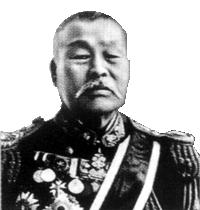
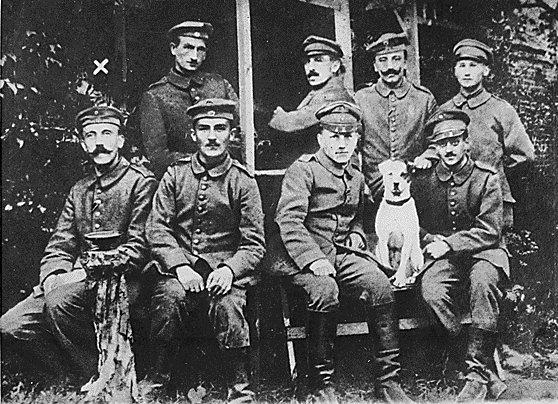
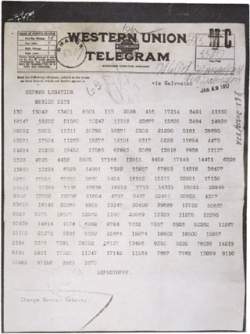
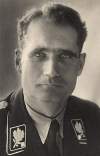
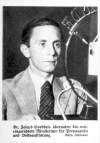
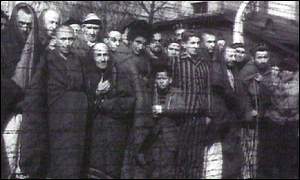
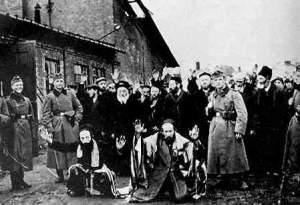
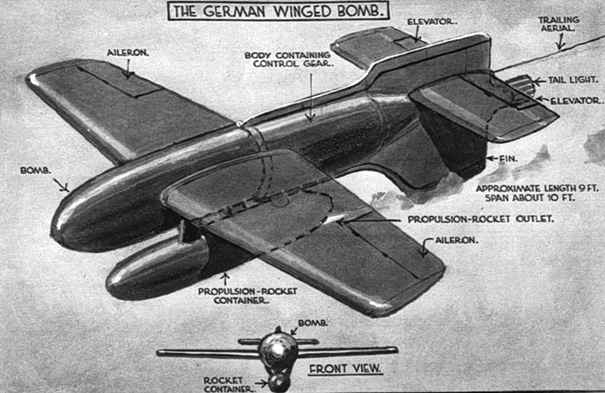


In my opinion, a state functionary has two types of responsibility. One is the responsibility for his own sector and for that, of course, he is fully responsible. But above that I think that in decisive matters there is, and must be, among the leaders a common responsibility, for who is to bear responsibility for developments, if not the close associates of the head of State? This common responsibility, however, can only be applied to fundamental matters, it cannot be applied to details connected with other ministries or other responsible departments, for otherwise the entire discipline in the life of the State would be quite confused, and no one would ever know who is individually responsible in a particular sphere. This individual responsibility in one's own sphere must, at all events, be kept clear and distinct . . . . even in an authoritarian system the leaders must accept a common responsibility, and that it is impossible for them to dodge that common responsibility after the catastrophe, for if the war had been won the leaders would also presumably have laid claim to common responsibility. But to what extent that is punishable under law or ethics I cannot decide, and it was not my purpose to decide . . . .
On the occasion of the handing over of the memorandum Hitler knew of the contents, since I had discussed it with some of his associates. Therefore his statements are typical of his attitude toward this basic question. I would not have raised the severe accusation which I made here by saying that he wanted to draw Germany into the abyss with him, if I had not confirmed his statements in that respect in the letter of 29 March 1945 . . . .
I had a chance to resign on three occasions; once in April 1944, when my powers had been considerably reduced; the second time in September 1944, when Bormann and Goebbels were in favor of my resignation; and the third time on 29 March 1945, when Hitler himself demanded that I should go on permanent leave, which was equivalent to resignation. I turned down all these opportunities because, beginning with July 1944, I thought that it was my duty to remain at my post. [See: Why Did Hitler Insist on No Surrender?]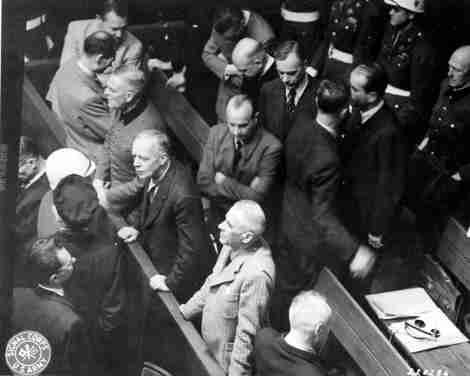
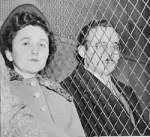
levi.bookin@gmail.com







